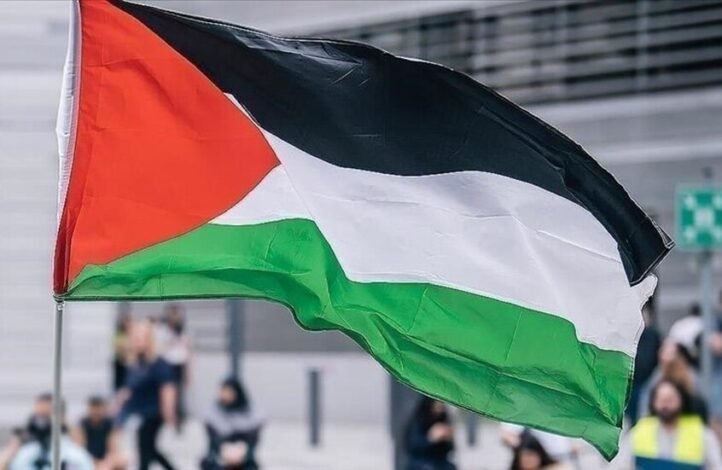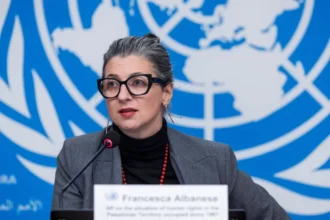
ICSPR: Recognition of the State of Palestine is a Historic Step but Will Remain Symbolic Unless Translated into Practical Measures to Stop the Genocide and End the Occupation
Date: September 22, 2025
Press Release
ICSPR: Recognition of the State of Palestine is a Historic Step but Will Remain Symbolic Unless Translated into Practical Measures to Stop the Genocide and End the Occupation
The International Commission for Supporting the Rights of the Palestinian People (ICSPR) welcomes the growing wave of international recognition of the State of Palestine, which recently included several European and Western countries, most notably the United Kingdom, Canada, Australia, Portugal, France, and Belgium, following earlier recognitions by Spain, Ireland, Norway, and Sweden. The Commission considers that, although delayed, these recognitions represent an important historic shift that blocks the Israeli occupation’s attempts to deny the political and legal existence of the Palestinian people, and affirms their cause as a legitimate and non-negotiable national liberation struggle.
ICSPR believes that these recognitions have deep political and legal implications, as they reflect strategic shifts in global public opinion and the positions of Western governments, and demonstrate alignment with the values of justice, human rights, and the right to self-determination, especially in light of the horrific crimes committed against the Palestinian people, which have culminated in nearly two years of systematic genocide in the Gaza Strip, as well as policies of ethnic cleansing, Judaization, and settlement expansion in the West Bank and Jerusalem. These recognitions practically invalidate the Zionist narrative that denies the existence of the Palestinian people, restoring legitimacy to their cause as a just political and legal issue based on international legitimacy and UN resolutions, which imposes a special responsibility on the United Kingdom and France to work on correcting the historical injustice resulting from the Balfour Declaration and colonial policies that deprived the Palestinian people of their rights.
ICSPR warns that these recognitions will remain symbolic unless translated into practical measures, turning Palestine into a “paper state” without sovereignty or territory, and also warns against recognition being used to impose any conditions that restrict the Palestinian people’s right to self-determination. Recognition should be a sincere step toward ending the Israeli occupation.
ICSPR emphasizes the necessity of working to restore national unity and rebuild the political system’s institutions on the basis of partnership and democracy, enhancing Palestinians’ ability to face existential challenges and using the wave of recognitions to internationalize the conflict to realize the State of Palestine. In this context, recalling the position of UN Secretary-General António Guterres, who stressed that the world “should not fear” Israeli reactions, recognition of the State of Palestine should serve as a political, legal, and popular lever for practical Palestinian and Arab-international measures, including:
-
Immediate cessation of aggression and genocide,
-
Implementation of International Court of Justice and UN General Assembly resolutions regarding the illegality of the occupation and settlements,
-
Imposition of international sanctions on the occupying state,
-
Expansion of the boycott movement,
-
Halting all forms of economic, political, and security relations with the occupying state and holding its leaders and partners accountable before international courts,
-
Activating the “Uniting for Peace” mechanism in the UN General Assembly to form an international humanitarian coalition that ensures forced intervention through sending an urgent international protection mission to stop the genocide and provide protection for Palestinians, within the framework of a practical program to end the occupation,
-
Establishing an independent Palestinian state with Jerusalem as its capital, and ensuring the return of refugees to their homes according to UN resolutions.





